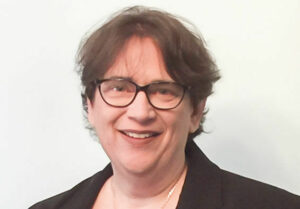
By Rabbi Joanne Yocheved Heiligman
Chayei Sarah opens, “The life of Sarah was 100 years, and 20 years, and 7 years, were the years of Sarah’s life.”
Writing after the horrific pogrom of Oct. 7, I cannot help but to see in these words the lives of the elderly approaching the age of 100, the lives of young adults from their 20s and the lives of children, many not even of the age of 7, whom we have lost. May they all be identified and given proper Jewish burials in the land of Israel. Hostages of all ages have been torn from their homes and families, and not yet returned. May they return to their loved ones in good health and restored to well-being, speedily, speedily.
Chayei Sarah is about loss, grief, mourning and consolation. Sarah dies, and Avraham must acquire a familial burial site. In the sight of witnesses, he pays an exorbitant sum for the cave of Machpelah. Avraham is intentionally and dramatically above reproach, and in purchasing the burial site, the first Jewish holding in the land of Israel, he ensures his permanent deed to the site will be irrefutable.
This echoes the episode in Lech Lecha (Genesis 14) when Avraham forms an alliance with four local kings to rescue his nephew Lot who has been kidnapped. Avraham refuses to take even a shoelace of the spoils of victory.
He does not want any suggestion that what he has is not rightfully his, “So you shall not say it is I who made Avram rich.” Moral clarity is essential to his character.
Avraham has lost his wife, his lifelong partner, his covenantal co-parent. Together, Avraham and Sarah began the story of the Jewish people. God promised Avraham earlier in Bereshit (Genesis) that he would be the father of a great nation; this could only be fulfilled with his wife Sarah, not with a handmaid. Hagar’s son Ishmael would have his own blessing, and at the end of this parshah, that blessing is realized as Ishmael’s sons are listed as 12 tribal princes in his genealogy. At the end of the parshah, Avraham dies and is buried by his reunited sons, Ishmael and Yitzhak finally brought together as brothers.
Passing down the covenant at this time in our history is a family affair; it takes a marriage. Without Sarah, Avraham must retire from being the covenantal patriarch, and he must ensure an appropriate wife for Yitzhak. Two major events mark the passing down of the covenant to Yitzhak.
First is the Akedah, the binding of Yitzhak at the end of last week’s parshah. This seals the commitment of both Avraham and Yitzhak’s total commitment to God and marks the future site of the Temple Mount, “the place the I (God) will show you.” The other essential event is finding a bride for Yitzhak who will exemplify the proper traits for a matriarch.
Avraham’s “professional life” is complete. He can move on to a different phase of life, marry again and have children who will inherit wealth but not the covenant.
Most of the parshah is the detailed story of how Rivka (Rebecca) is betrothed and brought to Yitzhak. Rivka demonstrates kindness and compassion and echoes Avraham’s response to the “Lech Lecha” (Get up and go!) call. Her family asks Rivka, “HateiLChi?” Will you go? And she responds. “EiLeCh,” I will go. She too will leave her father’s house for the promised land, sight unseen, to become the mother of a great nation.
When they meet is love at first sight. Yitzhak marries Rivka and is finally comforted after the loss of his mother. The covenant now rests on Yitzhak and Rivka.
Rabbi Joanne Yocheved Heiligman is the spiritual leader of Bet Chaverim Congregation in Columbia and a member of the Baltimore and Howard County Boards of Rabbis.





